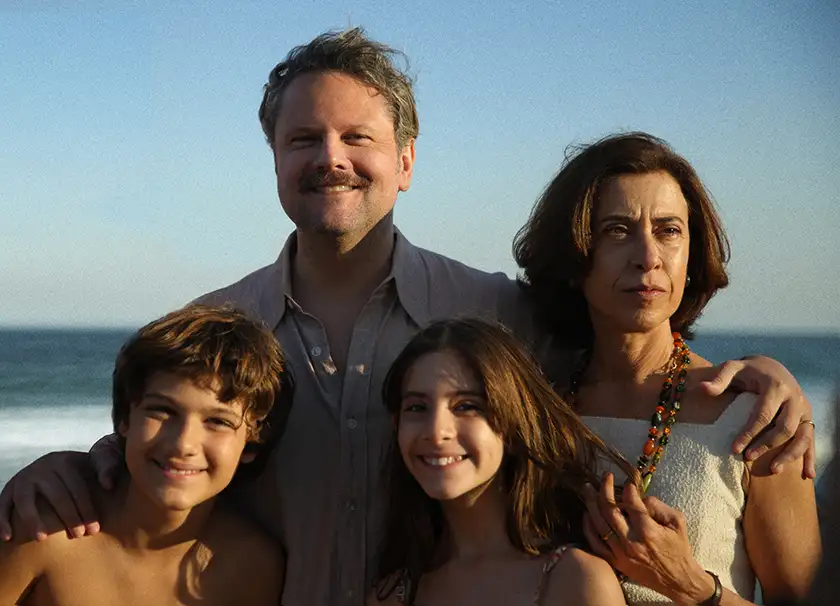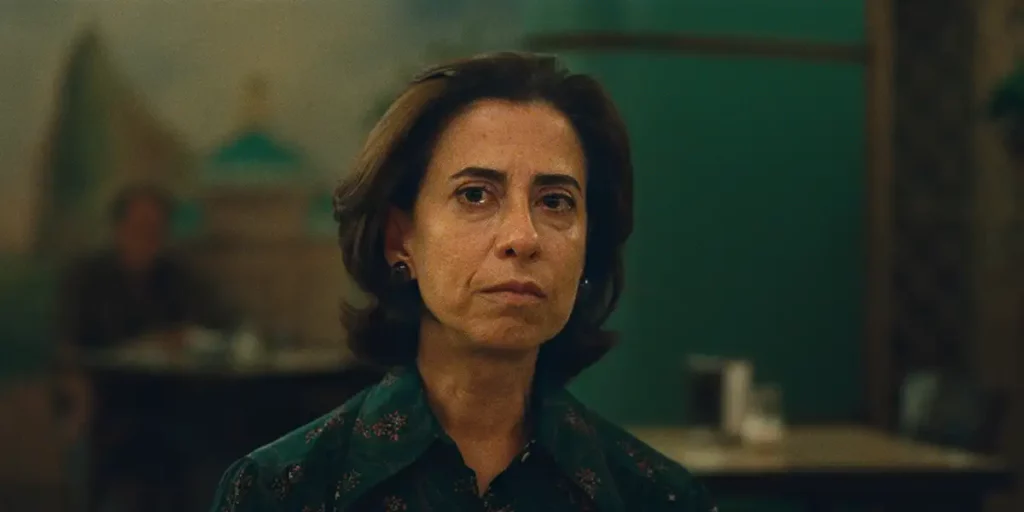Based on a real-life story, I’m Still Here (Ainda Estou Aqui) is a beautiful and passionate film about a dark time in Brazilian history.
Director: Walter Salles
Original Title: Ainda Estou Aqui
Genre: Drama
Run Time: 135′
Venice Premiere: Sept. 1, 2024
Release Date: 21 February 2025 in UK & Irish cinemas
Based on the 2015 book “Ainda Estou Aqui” and the real-life story that it tells, I’m Still Here delivers an upsetting and sad portrayal of Brazil in the 1970s by focusing on the tale of one family. In doing so, it joins the ranks of South American movies that deal with the painful and violent history of their respective countries, often marked by military dictatorships and disappearances of people.
Set in Brazil in 1971, I’m Still Here follows the life of the Paiva family, which is made up of Rubens (Selton Mello), an ex-congressman who now works as an engineer, Eunice (Fernanda Montenegro), and their five children. With the military dictatorship growing harsher, the parents decide to send their politically outspoken eldest daughter Vera (Valentina Herszage) to London with some family friends who are fleeing the country. The rest of the family, however, will stay in Rio de Janeiro, as Rubens believes they are not in danger yet. However, one day Rubens is taken away for questioning and never returns to his family, with the government refusing to admit that he was ever arrested.
From its opening scene, I’m Still Here gives a chilling portrayal of what life looks like in Brazil under a military dictatorship. The film opens in what may look like an ideal scenario as the children play on the beach – and even find a dog to take home – while their mum swims nearby. But something ruins this idyllic scene: the military airplane flying over the ocean in Rio de Janeiro. In a similar way, Vera’s outing with her friends may seem very normal until they are forcibly stopped by very aggressive police who force them out of their car at a military roadblock on their way home.

Both scenes have an eerie and scary element to them, especially to those of us in the audience who are not used to seeing this in our everyday lives, but in the film, they are portrayed as mostly normal occurrences. From the first two scenes, I’m Still Here immediately shows how much the military dictatorship influenced people’s everyday lives in Brazil at the time. Even when they are having fun or living their normal lives as children and teenagers, the characters are constantly reminded of the harsh realities of life in Brazil in the 1970s.
Without showing us much of the actual horrors behind the scenes, I’m Still Here still alludes to them. While the audience does see part of the investigation, it is very clear that what we see is only part – and perhaps the less terrible and brutal one – of the crimes committed by the military dictatorship against its citizens. At the same time, the film does not let us forget about them either, as Rubens’ absence is constantly felt by the characters from the moment he disappears. Much like the members of the Paiva family, we too are kept in the dark about what is happening to him, only relying on information leaking from the government or assumptions that are never really confirmed nor defined.
From the opening scenes of I’m Still Here, the audience also immediately becomes invested in this family’s life. Each of the children’s personalities is sketched out really well from the very beginning of the film as well as their relationships with each other, creating a family dynamic that feels realistic and heartwarming. This naturally makes the audience more invested in the stakes of the film, as we can’t help but root for their happiness, even when it is clear life for the Paivas will never go back to how it was. The beautiful portrayal of family life also makes it all the more heartbreaking when this family unit we have grown to love is separated and broken.
With its time jumps, I’m Still Here also connects the painful history of the country with present-day Brazil by making it clear that the pain and suffering that we see the Paiva family go through are not exclusive to them but, on the contrary, that is the case with the families of the many people that the government made disappear. The commentary on the current situation in Brazil is present throughout the entire film but not entirely explicit or overly explained. While this is not necessarily a flaw, I do wish that the film had focused on the more recent timeline a little bit more in order to explore this connection more thoroughly.
Overall, I’m Still Here is an emotionally powerful film that is bound to bring you to tears. Its heartbreaking portrayal of a family story quickly becomes a lot more than that when we realise that this is based on a true story as the real photos of the Paiva family appear during the credits. At the same time, this personal story becomes the historical image of a country, as Rubens’ tale is only one example of the many lives that the military dictatorship took in Brazil without a single explanation to their families.
I’m Still Here (Ainda Estou Aqui) had its World Premiere at the Venice Film Festival on September 1, 2024. The film opened in US theaters on January 17, 2025 and will be released in cinemas in the UK & Ireland on February 21, 2025. Read our review of Taxi Monamour!

